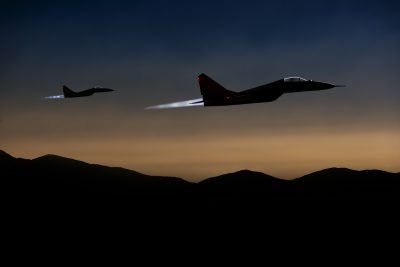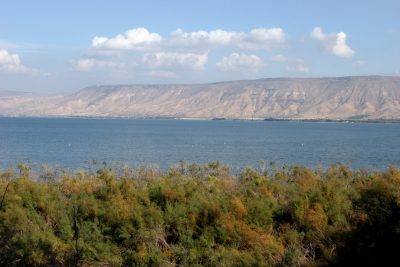Recently Iran and Syria signed a military cooperation agreement. This agreement is yet another indication for what has been clear for a long time: Iran’s consolidation in Syria is a fait accompli. Whether it be Iranian soldiers, Iranian militias or any other form Iranian proxies, the security equilibrium we have known for the last decades has changed: the border between Israel and Iran, between the West and radical Islam, is now on the borders of the Golan Heights. Faced by this new reality Israel and America can no longer rely on antiquated perceptions of the balance of power from the days before the Syrian war.
If the Iranian’s plan will be implemented, the border of the Golan Heights will undergo a process similar that which happened in Lebanon. Iranian militias, in Hezbollah model, will occupy the border area, the concentration of the Shiite population along the border will increase, and rocket stockpiles will threaten the residents of the Golan and the Eastern Galilee. Iran understands that the way to challenge Israel is not necessarily through classical military warfare, but rather by asymmetrical warfare – i.e. operating proxy terrorist organizations and militias to create incidents on the border and attack civilians.
To counter this change in the equation Israel and the United States must form a new equation of their own through the recognition of Israel’s sovereignty over the Golan Heights. This is in the common interest of both countries.
From the Israeli perspective, international recognition of its sovereignty in the Golan heights is a security necessity. Firstly, while the Galilee and the Gaza Envelope are recognized by the world as part of Israel’s legitimate territory, the international community, including the United States, views the Golan Heights as “occupied territory”. In light of this state of affairs, and in a case of a military escalation, Israel will find it difficult to achieve international legitimacy for its self-defense should it be forced to initiate a military operation deep into Syrian territory, as it had done in Gaza and Lebanon. The Iranian defense minister hinted to this potential issue during his recent visit to Syria when he noted that Iranian forces are in Syria at Assad’s request, in contrast to the Israeli presence in “the Syrian Golan Heights”.
Secondly, experience with the Gaza border and the Galilee in the days of the Lebanese conflict, teaches that attacks on the civilian population could encourage political movements in Israel as well as international elements to propose a diplomatic agreement with the enemy – in this case an Iranian withdrawal from border areas, in exchange for an Israeli withdrawal from the Golan. More advanced proposals could even conjure up the idea of a complete withdrawal from the Golan Heights in order to minimize Iranian influence and to achieve peace with Syria. This doctrine, it should be noted, was held by the governments of Rabin, Barak, Olmert, and Netanyahu until the outbreak of the war in Syria.
But the recognition of Israeli sovereignty in the Golan heights is also in America best interest. American influence in the Middle East was damaged by Russia’s entry into Syria and Iran’s attempts to expand its influence in the region. The US has a clear interest in marking a “red line” regarding Iranian and Russian ambitions in the Middle East. At the same time America has no interest in expanding its use of military force. American recognition of Israel’s sovereignty over the Golan Heights will send a clear message to Iran that this sovereignty is undeniable and that the attempts to challenge it are futile. At the same time, it will send a clear message to the Russians that they should restrain the Iranians. In addition, it will also reduce the chances of a future military confrontation between Israel and Iran, which Israel might initiate to defend itself from Iranian aggression – a conflict that could drag other countries and possibly the United States into participation in a snowball effect.
Israel and the US should act as soon as possible to achieve international recognition of Israeli sovereignty over the Golan Heights, not as a gesture of good faith, but from an understanding that the matter constitutes a common geopolitical strategic interest for both countries.



